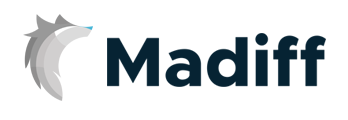The world will rapidly change due to artificial intelligence advancements. This will eventually lead many professions to become obsolete: study says around 300 million jobs may disappear. Other activities may not disappear completely but will fundamentally change over the next few years.
The main change will be on productivity, whereas an activity that needed 10 people to be performed will be done by robots. However, although one robot may substitute the work of 10 people, it will still require one person to supervise and review its activities.
Careers supported by AI in the future
Even so, it is not all bad news in the AI world. New professions will eventually arise, providing opportunities for current and future tech professionals. Here are some of them.
-
Prompt creator
“Prompts” are requests made for robots, or the way we communicate with them. For AI to provide increasingly assertive answers, it is necessary to make objective, technical requests. A prompt designer or creator is a person that understands how each specific AI works and will know exactly how to take advantage of it.
This career will require great programming knowledge, but also communication skills. For that reason, people working on communication jobs – such as journalism or marketing – may take advantage of this opportunity.
-
Cybersecurity Specialists
AI is such revolutionary technology that can create miraculous solutions – and equally complex problems. For example, robots that can imitate the voice of whoever open a precedent for huge fraud flaws.
Additionally, there will be more complex frauds. It is possible to program AI to give any sort of answer, including wrong or malicious ones. To avoid this and other sorts of cybercrimes, the AI cybersecurity specialists will be mandatory for any company that works with such technology.
These specialists will be programmers, computer scientists and software engineers that will work by foreseeing and stopping this type of issues.
-
Chatbot Auditor
Robots obviously do not have biases, but they are able to reflect the stereotypes and prejudices of humans when they learn content we have generated. There is a great number of problematic examples created by AI – that will demand an auditor vigilance.
The ideal person for this job would be someone with critical sense, great analysis capacity and problem solutioning. Anthropologists, sociologists, and journalists, for example, would do great in such positions.
There will also be an increased demand for compliance specialists such as lawyers, capable of detecting legal infractions such as plagiarism and privacy concerns.
-
AI designer
This professional will be responsible for developing the way robots will communicate and interact with humans. This person will, for example, imagine and design the universe behind chatbots: create the “psychology” and behaviours.
These interactions need to be scripted in prompts. Currently, tech professionals are still in charge of these services, but as AI become more complex, interaction will also need to be more precise. In this scenario, UX professionals, information architecture, communication and with storytelling experience may act as AI designers.
-
AI Analyst
This professional will have a more practical job, but equally important to the well-function of robots. AI analyst will analyse the results brought by machines and evaluate if they were useful or not. They may also classify the type of response generated.
This data, on the other hand, will be endorsed by the artificial intelligences itself, so they can improve their services.
These are just some examples of the potential jobs created by the AI advancement, but surely more and more will come in the following years. Are you ready to embrace these changes or reinvent your career to face these new challenges?
